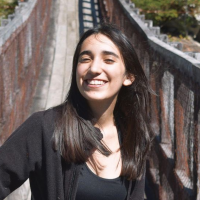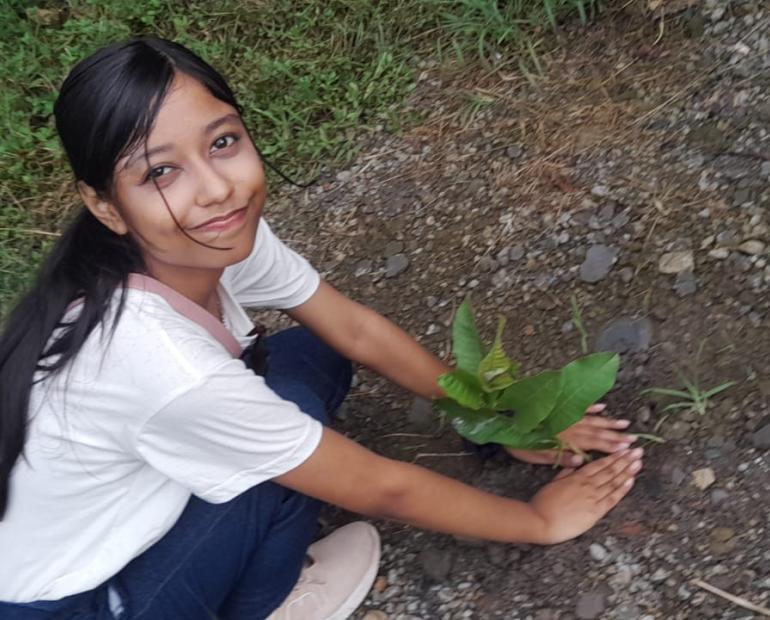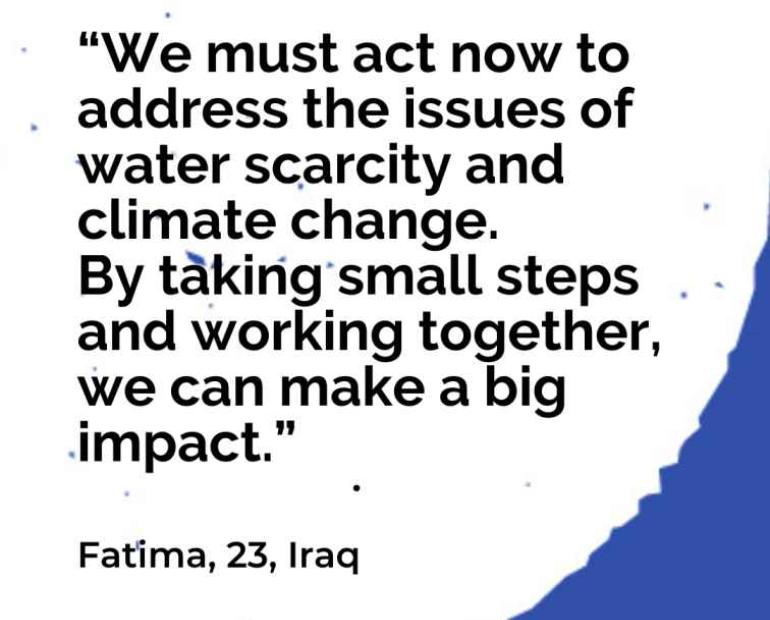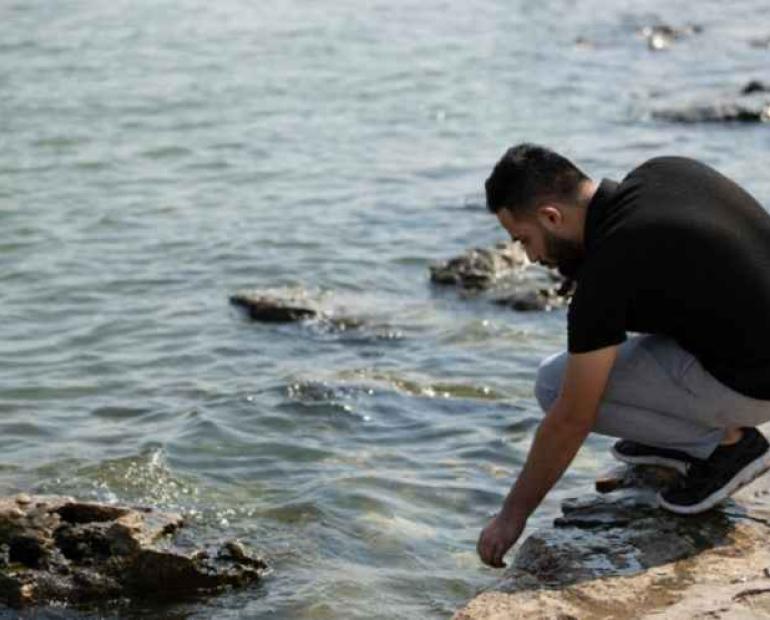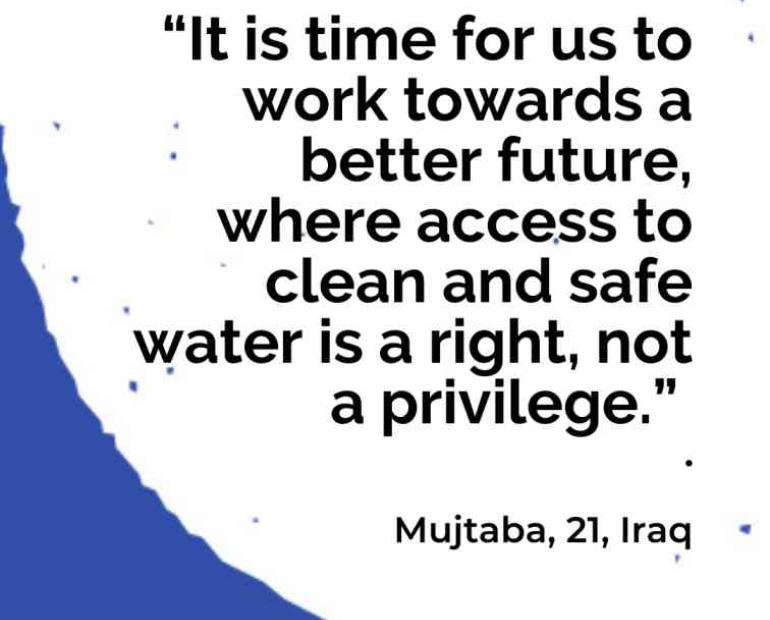
On the occasion of World Water Day, marked on March 22, the President of the United Nations General Assembly convened a high-level meeting to promote the implementation of the water-related goals and targets of the 2030 Agenda. Catalina Silva, a 20-year-old activist and CONCAUSA youth ambassador from Chile, shared this speech during this event, on March 18. You can see her intervention here (45´:42´´).
I come from the land of ice in Patagonia; a land that has undergone geological transformation for thousands of years and where we experience uncertainty on a daily basis. I am from Villa O'Higgins, a small Chilean town located in the southern Andes mountains, where Campo de Hielo Patagónico is located, the third largest solid freshwater reserve in the world, after Antarctica and Greenland.
I was eight years old when the tree above my head seemed to have no end towards the sky, and when this vast and sparsely populated territory gave me the opportunity to participate in a series of scientific investigations that sought to decipher the biodiversity of different bodies of water.
I spent five years studying Lake O'Higgins, the deepest lake in America and the fifth largest in the world, about which not much was known until two teenagers arrived and we decided to investigate the richness and abundance of different microalgae that abounded in this lake.
I come from a land in which we boys and girls decided to discover the secrets that inhabited our feet, and along the way, share all the knowledge that the end of the world inhabited through documentaries, educational capsules, and at the same time, alerting the community to the biggest threats.
At the age of seven, I experienced what it is like to fight against a hydroelectric megaproject that wanted to stop the water from our flows and restrict access to our community.
When I was ten years old, I walked for the first time on a glacier. Its cracks generated some fear in me; it was a fragile and unknown terrain that opened before my eyes. I returned four years later to that mountain. Unfortunately I found a very different panorama: those glaciers, which covered large slopes in my childhood, had receded, leaving modified ecosystems in their wake. But this time it was not the product of a transnational company, it was the effects of a silent pandemic that today attacks our entire planet: it is the effects of climate change.
The glaciers of Patagonia are a reservoir of water for humanity; we live in a privileged place where the essential liquid is abundant. And here, in the land of ice, we know that we have a responsibility to protect them. A responsibility that is shared with all humanity; reduce the carbon footprint and take care of this natural treasure.
Have you ever been thirsty?
According to the United Nations, 2.2 billion people are living without access to clean water. And 450 million children live in areas of high or extremely high vulnerability to it.
Have you been thirsty? Whenever I want water, I turn on the tap, pour myself a glass. In the worst case, I go, buy myself a bottle, and figure it out. But there are people in the world who cannot quench their thirst. Probably one of the worst sensations in the world. That is why I want that the next time you want water, you don't drink. Think first of all those children, adolescents, people in the world who cannot quench their thirst and do not drink water. Maybe so we can move forward with solutions in a faster way.
Water is worth more than gold: the value it has for our homes, for culture and education, the economy and the integrity of our natural environment, is immeasurable. If the public policies of our nations did not incorporate these values, we could not achieve sustainable management to overcome poverty, to achieve economic growth or to begin to generate real care for the environment.
Today, in my 20s, I continue to mobilize, I continue to generate strategies, I continue to generate alliances, and making a call to everyone so that we begin to take care of this reserve of water, of life for humanity and thus also begin to value access to water in the most disadvantaged communities.
This is because I do not want to reach my 50s and realize that in my youth I did not do the impossible so that our governments listen and manage the necessary measures to be able to stop or manage this crisis.
Faced with this scenario, despite the few opportunities for participation that exist to make decisions in public policies, young people have organized ourselves; I'm not alone.

Today we young people begin to recognize ourselves as actors, and no longer as spectators of this changing reality. We understood that if we are determined to do it, together we can generate incidence and transformation in our communities.
Today we continue to raise our voices to pressure those who make decisions, but at the same time, we have become direct agents of change, because we know that no one is going to give us the future we dream of.
We understood that activism is a very certain way to reach the top of the steepest mountain. Because we yearn for global goals and solutions, we act locally in our communities.
Franco, Viviana and Melany from Argentina are living proof of what I am telling you: they developed a project using a native seed to generate sanitation in the water of their community. They are agents of change in their territory.
And just like them, there are a million adolescents throughout the world generating seeds of action. Personally, I am from a network called Concausa de adolescents from Latin America and the Caribbean, which in aid and cooperation with América Solidaria, UNICEF and ECLAC/CEPAL have developed a new model of cooperation organization. We understood that by working in an intergenerational, interdisciplinary and intercultural way we can find the goal, find the solution, reach the top of the steepest mountain where the great rivers are born.
Because we understood that this climbing this rope will help us to reach the goal, to reach a global goal for which all of us in this session are mobilizing.
As adolescents and young people we no longer want to be treated as objects but as subjects of law, because we want to be linked to the decisions that involve our present, but also our future.
I come from the land of ice, Patagonia, land of storms; and after the storm, calm always comes, here we know it very well.

But how do we end this storm?
In the great mountains that defy climbers, the camps are set up by people who sacrifice themselves so that others reach the summit. Societies facing the water crisis need commitment, action, and global solidarity from the most privileged in order to achieve the Sustainable Development Goals.
From the southernmost lands, we are committed to conserving this territory for humanity, this treasure that we have here in Patagonia. But we need everyone to reach the top of this mountain, as water is an essential right for humanity.


